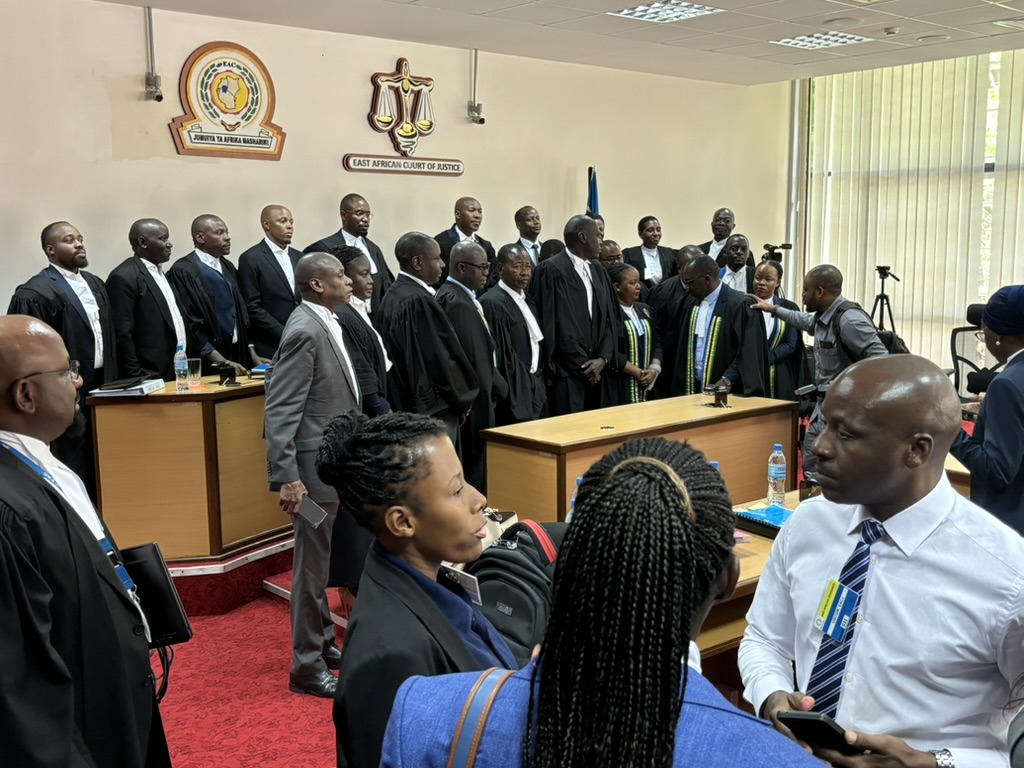The Bar Human Rights Committee of England and Wales (BHRC) has been closely following the proceedings in the East African Crude Oil Pipeline (EACOP) case before the East African Court of Justice (EACJ). This report follows a recent BHRC visit to observe an EACJ hearing in Arusha, Tanzania to monitor the ongoing appeals proceedings.

Image: EACJ lawyers after the EACOP hearing on 15 November 2024 © Dr Tom Hamilton
On 15 November 2024, the Appellate Division of the EACJ was scheduled to hear an appeal from the four East African civil society organisations (CSOs) that are the claimants in the case. The outcome of the hearing was an adjournment to 25 February 2025 for procedural reasons, further delaying the outcome of the appeal.
Travelling to Arusha as a trial observer on behalf of BHRC, Dr Tom Hamilton attended the pre-hearing meetings of all appellant legal teams on 14 November 2024. He observed the CSOs working on the preparations for the appeal, discussing the legal strategy and concerns about the case with lawyers representing the CEFROHT, AFIEGO, Natural Justice Kenya, and the Center for Strategic Litigation Limited. He met Ugandan and Tanzanian activists at the EACJ on 15 November 2024 prior to the hearing and conducted informal interviews with them about the progress of the case. Subsequent to the hearing he was able to discuss the significance of the case with several of the dozens of project-affected persons who had travelled to the Arusha hearing from Uganda and who were watching proceedings from the public area of the courtroom. He debriefed with the claimant advocates following the hearing in order to further understand the reasons for the adjournment and the causes of the defective record of proceedings.
BHRC wrote to the EACJ prior to the hearing to explain that the BHRC trial monitoring programme intended to observe the appeal proceedings from the public area of the courtroom and noting the independent and impartial status of a BHRC observer.
This report outlines BHRC’s observations and concerns regarding the proceedings and the broader human rights context surrounding the EACOP litigation. In particular, BHRC expresses its concern over reports indicating that NGOs working on EACOP-related issues face increasing difficulties, including threats, funding challenges, and pressure to soften their advocacy messages. The BHRC is particularly concerned about the alarming context in which anti-EACOP advocates are being targeted in Uganda for expressing their views. Furthermore, there has been a documented increase in the harassment and arbitrary arrests of human rights defenders and activists voicing concerns about the pipeline. Dozens have been arrested and a range of rights violations associated with EACOP’s land acquisition project have been reported including inadequate compensation.

